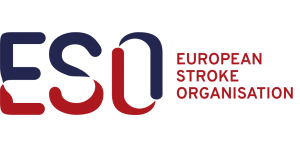ESO gains WSO Early Career Virtual Workshop Correspondence
By Aristeidis H. Katsanos, MD, Division of Neurology, McMaster University and Population Health Research Institute, Hamilton, ON, Canada

European Stroke Organization/GAINS/World Stroke Organisation Early Career Investigators Trials and Cohorts Virtual Workshop this year was a great opportunity for young stroke researchers in their early careers to meet each other and attend an inspiring series of lectures from established researchers in the field of stroke. This exact aim of the workshop was reflected in the title: “Creating The Next Generation of Stroke Researchers Amongst Our Early Career Investigators”.
On Friday 4, December 2020 the first session started by presenting the available “Global Trial Network Resources for Early Career Investigators -What Exists That Can Help You?” Dr. Demchuk presented the GAINS & Stroke Net and provided an overview of what is required to become a successful trialist in the early and mid-career stages. Dr. Lemmens presented the goal and aims of ESOTA, which constitutes a European “network of networks” to support European collaboration for stroke research and provide a link for researchers planning trials. Dr. de Sousa provided an overview of active Early Career Professional Committees for stroke researchers worldwide, focusing on their structure, activities and aims. In the next lecture Dr. Martins presented the example of Brazil as an emerging country perspective in stroke research underlining the importance of publishing research advances to attract public and international scientific attention. The next education session, chaired by Dr. Sandset, was a series of lectures building on a “Roadmap To Becoming A Successful Stroke Clinician Scientist”. Drs. Al-Shahi Salman, Coutts, Campbell presented their own personal journey and their transition from early to mid-career, acknowledging what worked for them and what they think that should have done differently. This series of lectures was targeted to new investigators and spread the ideas of collaboration over competition and impact over volume for paving a successful research path. The next session was a lively conversation between a successful mentor (Dr. Broderick) and his successful mentee (Dr. Khatri) highlighting the beauty and challenges of this unique relationship between two researchers at different career stages. The first day finished with group sessions addressing topics of protecting research time & negotiating salary support for research, getting the first grant and building funding, work life balance, how choose between saying no and saying yes, research network building and navigating to become an independent researcher.
The next day Saturday, December 5, 2020 was chaired by Dr. Dowlatshahi and started with a presentation Dr. Diener on the lessons learned from successful and failed trials. Dr. Diener provided a 30 year overview of randomized clinical trials in acute stroke treatment and secondary stroke prevention, in an ad-hoc analysis of the results from major trials testing neuroprotective or antithrombotic regimens. In the next presentation Dr. Middleton provided the challenges and opportunities of working across multiple centres or countries. The second day finished again with group sessions on “Research Project Presentations and Critique”. During this session attendees had the opportunity to present their ongoing research studies or developing ideas and receive constructive feedback from a group of mentors with similar research theme interests. At the end of the each group session participants were encouraged to exchange emails and contact mentors and peers to connect further.
European Stroke Organization/GAINS/World Stroke Organisation Early Career Investigators Trials and Cohorts Virtual Workshop was a unique opportunity for stroke researchers who like to develop further and transition to mid-career. This workshop provided significant and practical tips on many aspects of the early career life and work challenges. If I should summarize the main idea and concept of this very successful workshop I would use a phrase from Isaac Newton: “Seeing further by standing on the shoulders of Giants”.

